In today’s digital era, the rapid advancements in technology have brought about significant transformations in various industries, including accounting. One of the most revolutionary technologies making waves in the accounting field is Artificial Intelligence (AI).
AI has the potential to reshape the landscape of accounting outsourcing, offering new possibilities and challenges for businesses seeking to optimize their financial processes.
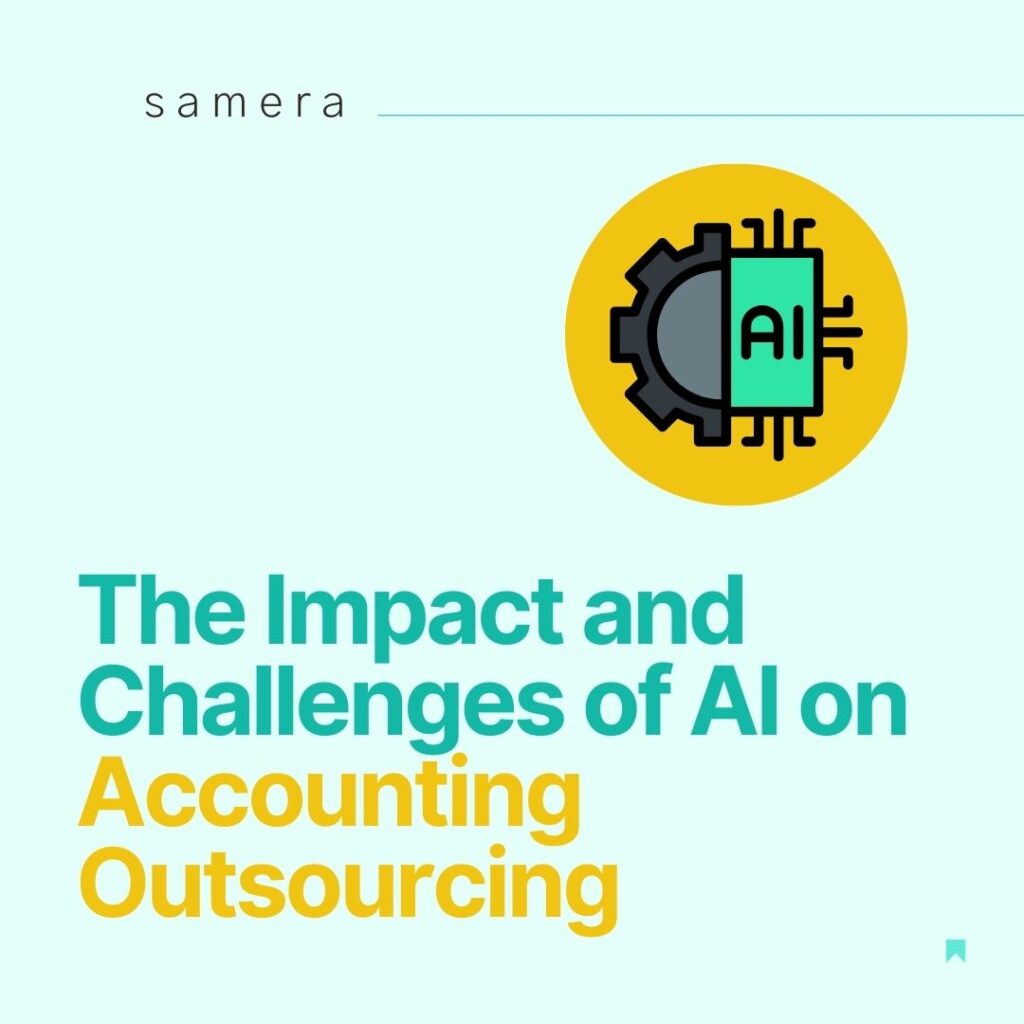
In this blog, we delve into the impact of AI on accounting outsourcing and explore the challenges that come with its implementation.
Impact of AI on Accounting Outsourcing
What impact does AI have on accounting outsourcing? The answer lies in a realm of possibilities, where AI’s transformative capabilities unlock new horizons for accounting firms. From optimizing work processes to enhancing accuracy and efficiency, AI has emerged as a game-changer in the world of accounting outsourcing.
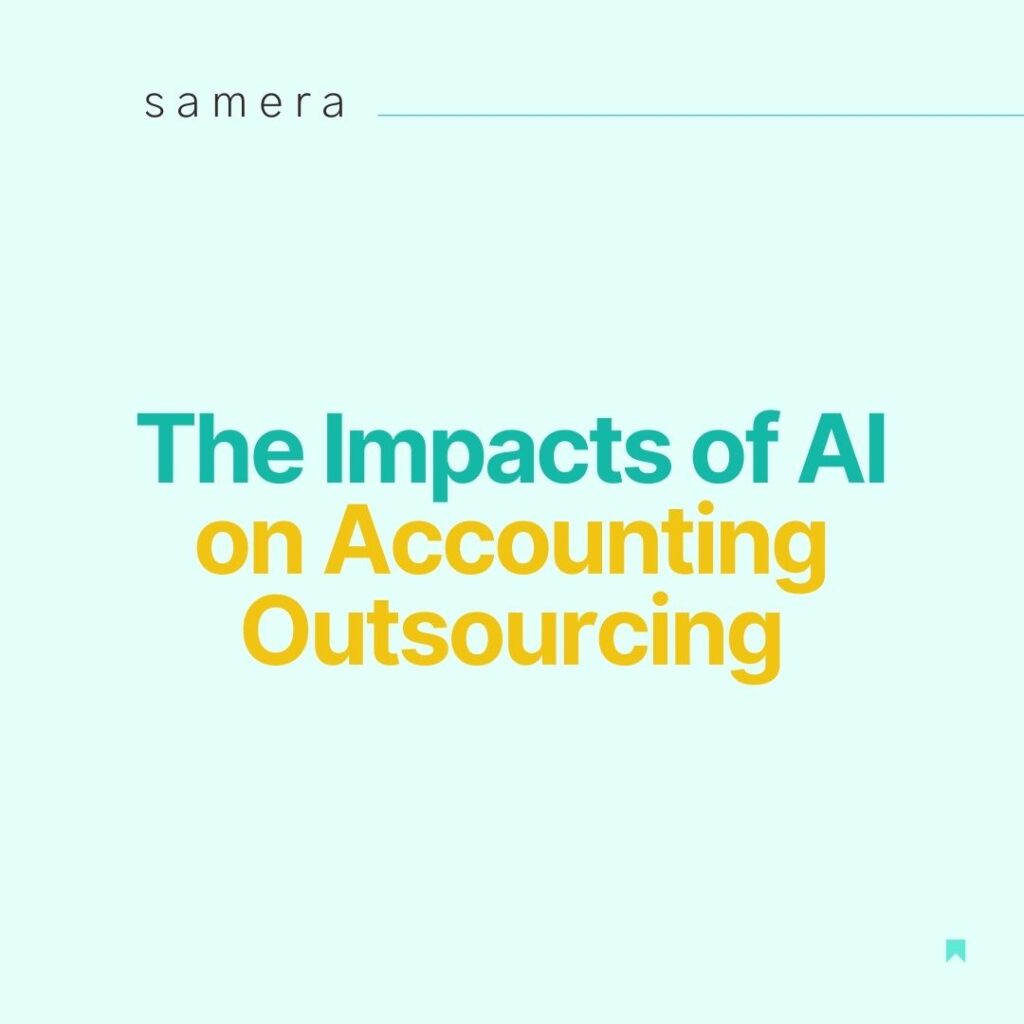
Let us understand the different ways in which AI is evolutionizing the accounting outsourcing industry.
- Improved Efficiency: AI-powered automation has the potential to streamline routine accounting tasks, such as data entry, bookkeeping, and document processing. By leveraging AI algorithms, accounting outsourcing firms can free up valuable time for their professionals, enabling them to focus on more complex and strategic activities. This improves overall efficiency and productivity, leading to faster and more accurate financial services for clients.
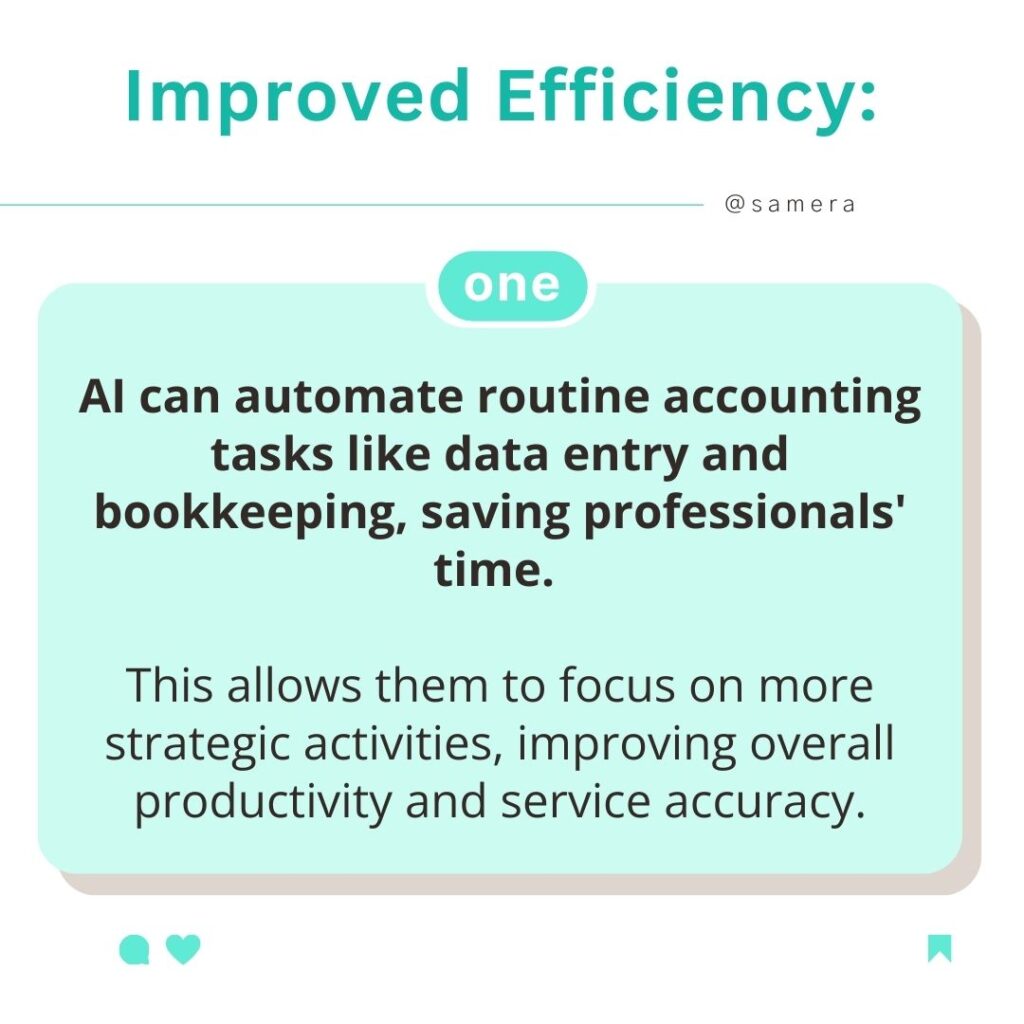
- Enhanced Accuracy: AI algorithms possess the ability to analyze vast amounts of financial data with unparalleled speed and accuracy. By employing AI in accounting outsourcing, firms can reduce the risk of human error, ensuring more precise financial reports and analysis. The increased accuracy of AI-driven processes enhances decision-making and provides clients with greater confidence in their financial data.
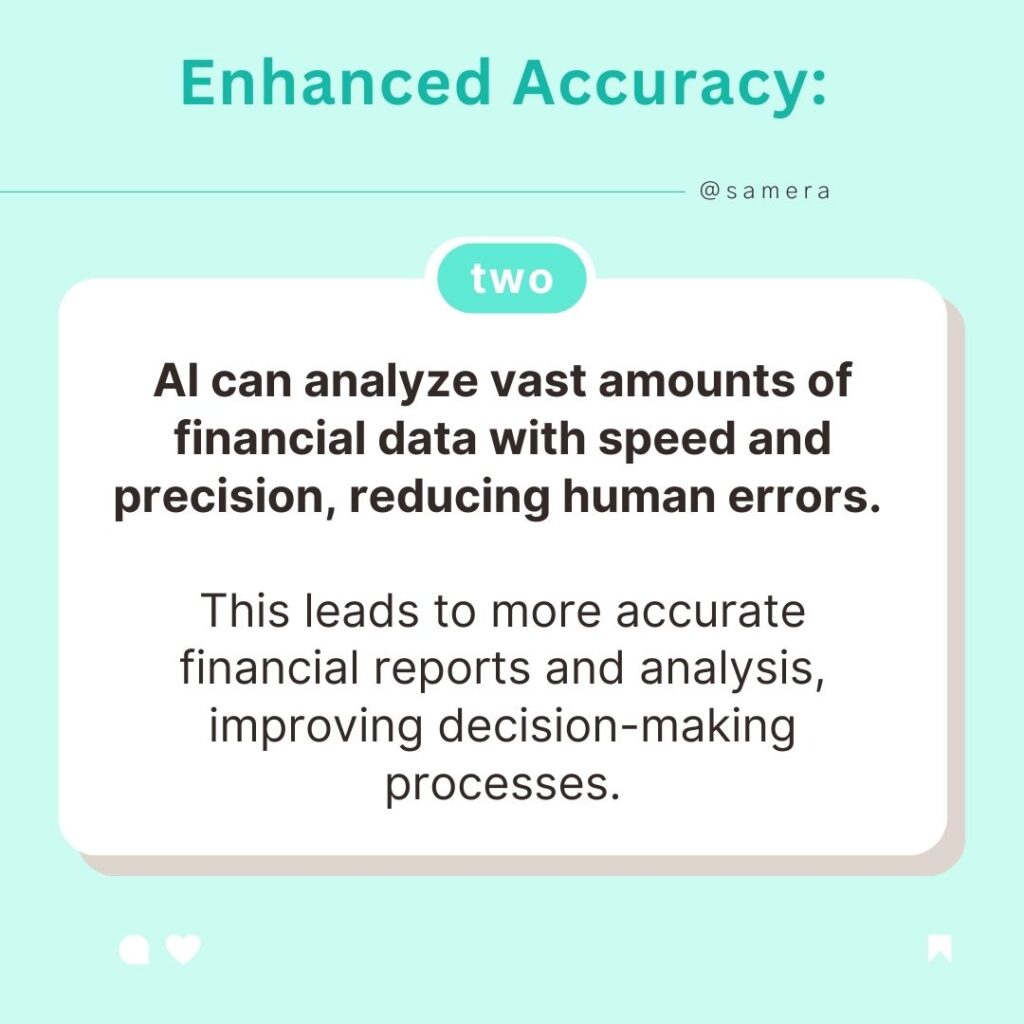
- Real-time Reporting: The power of AI lies in its ability to process data in real-time. Accounting outsourcing firms can leverage AI-powered data analytics to provide clients with up-to-date financial information. Real-time reporting enables businesses to make more informed and timely decisions, allowing for proactive financial management and strategic planning.
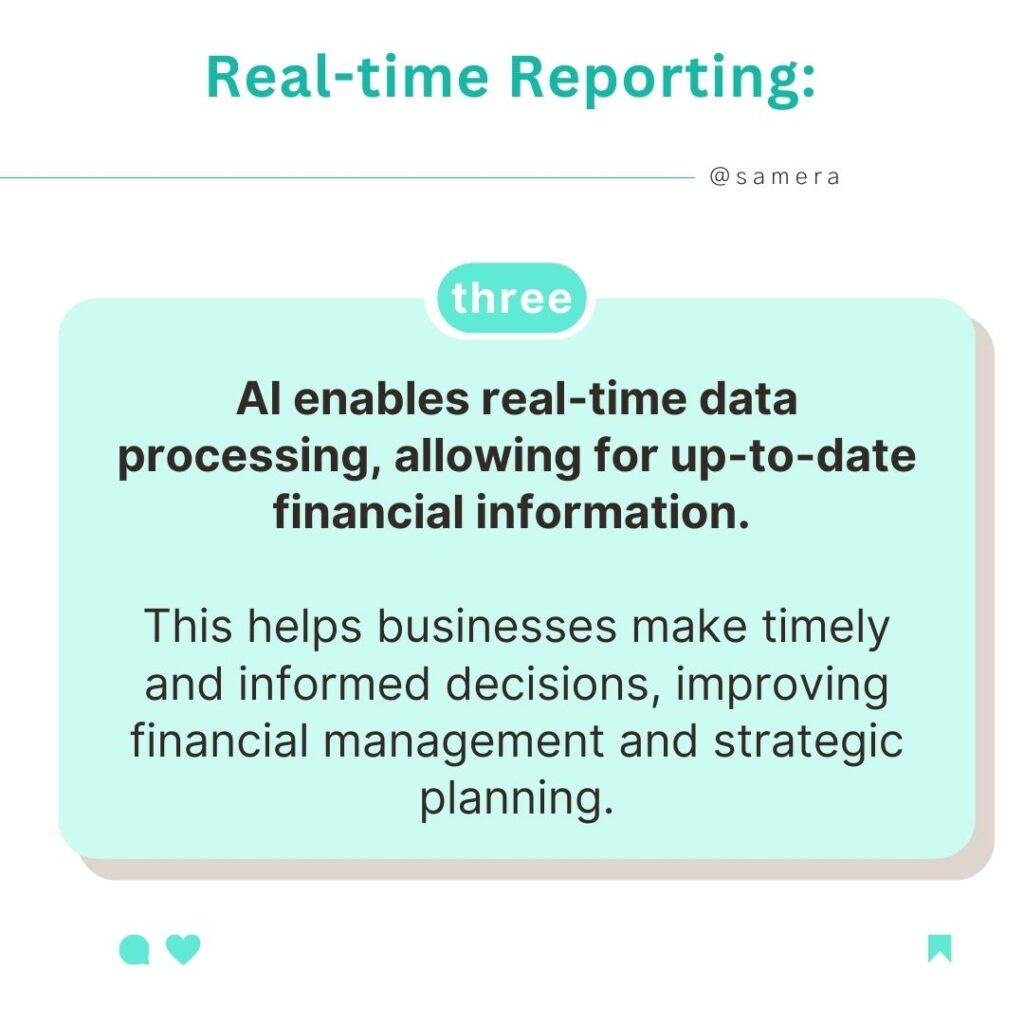
- Advanced Fraud Detection: AI algorithms have proven effective in detecting patterns and anomalies within financial data, making them valuable tools for fraud detection. Accounting outsourcing firms can leverage AI’s data analysis capabilities to identify unusual transactions or suspicious activities, enabling them to mitigate potential risks and safeguard their clients’ financial integrity.

The Challenges of AI in Accounting Outsourcing
While AI holds tremendous promise in revolutionizing the accounting industry, it also presents unique challenges that must be addressed. How can accounting firms navigate the complexities of integrating AI into their outsourcing practices? What are the potential hurdles and considerations that arise in this journey?
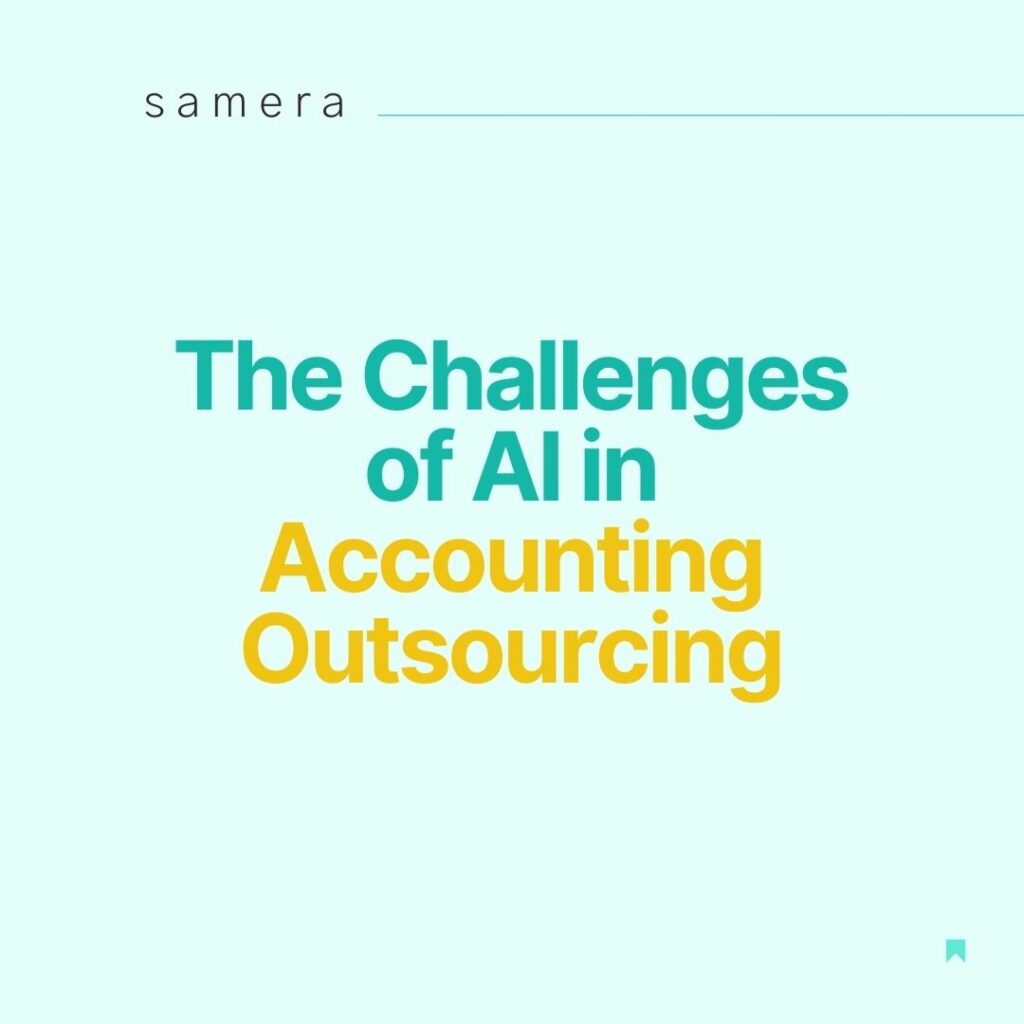
Let us delve into the challenges that AI poses for accounting outsourcing and explore how firms can navigate these obstacles to harness the full potential of this powerful technology.
- Data Quality: AI relies heavily on high-quality data to deliver accurate results. Ensuring the availability of clean, reliable, and up-to-date data can be a challenge for accounting outsourcing firms. Data inconsistencies, incomplete records, or inaccuracies can compromise the effectiveness of AI algorithms and lead to erroneous insights. Therefore, it is crucial for firms to invest in data quality management and implement rigorous data cleansing processes.
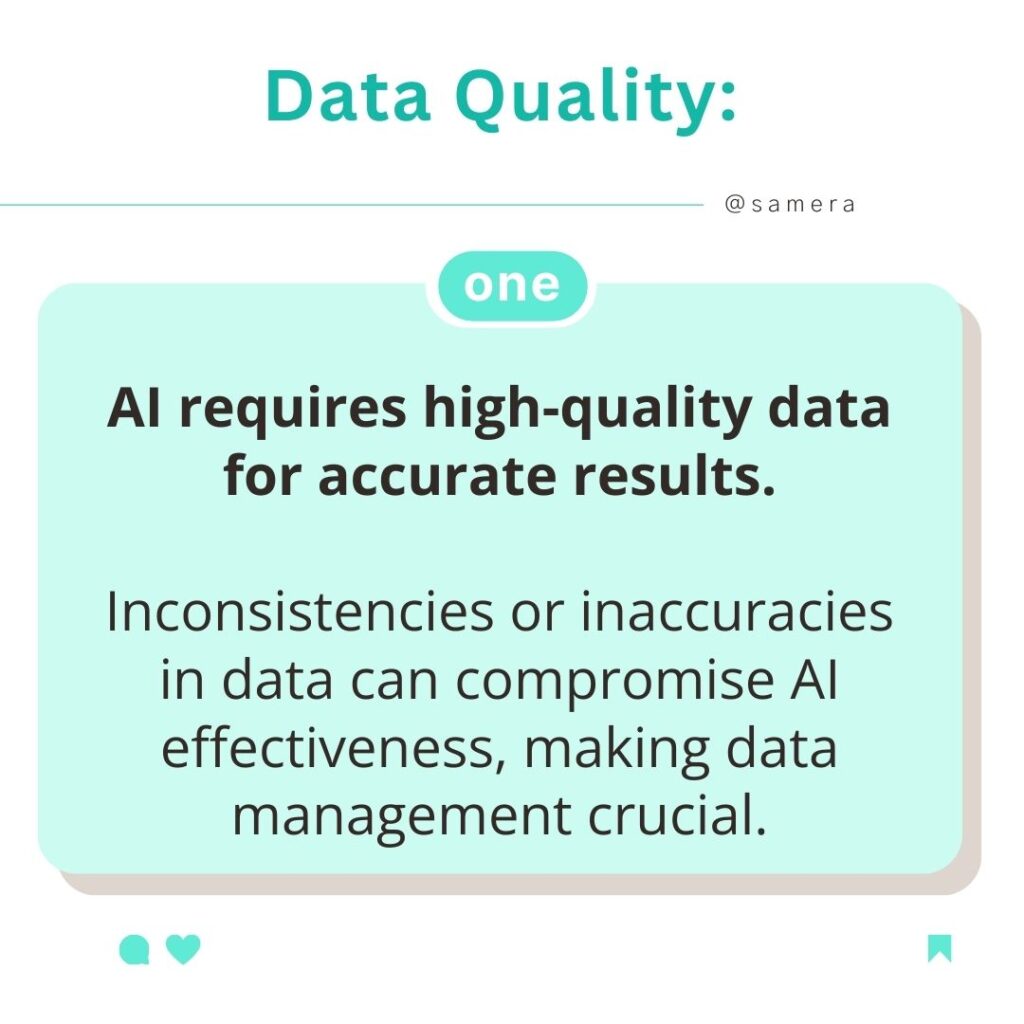
- Ethical Considerations: The increasing adoption of AI raises ethical concerns in the accounting industry. Biases embedded within AI algorithms can unintentionally impact decision-making processes. Accounting outsourcing firms must address ethical considerations, ensuring that AI systems are transparent, fair, and free from discriminatory practices. Ethical guidelines and governance frameworks need to be established to ensure the responsible use of AI in accounting.
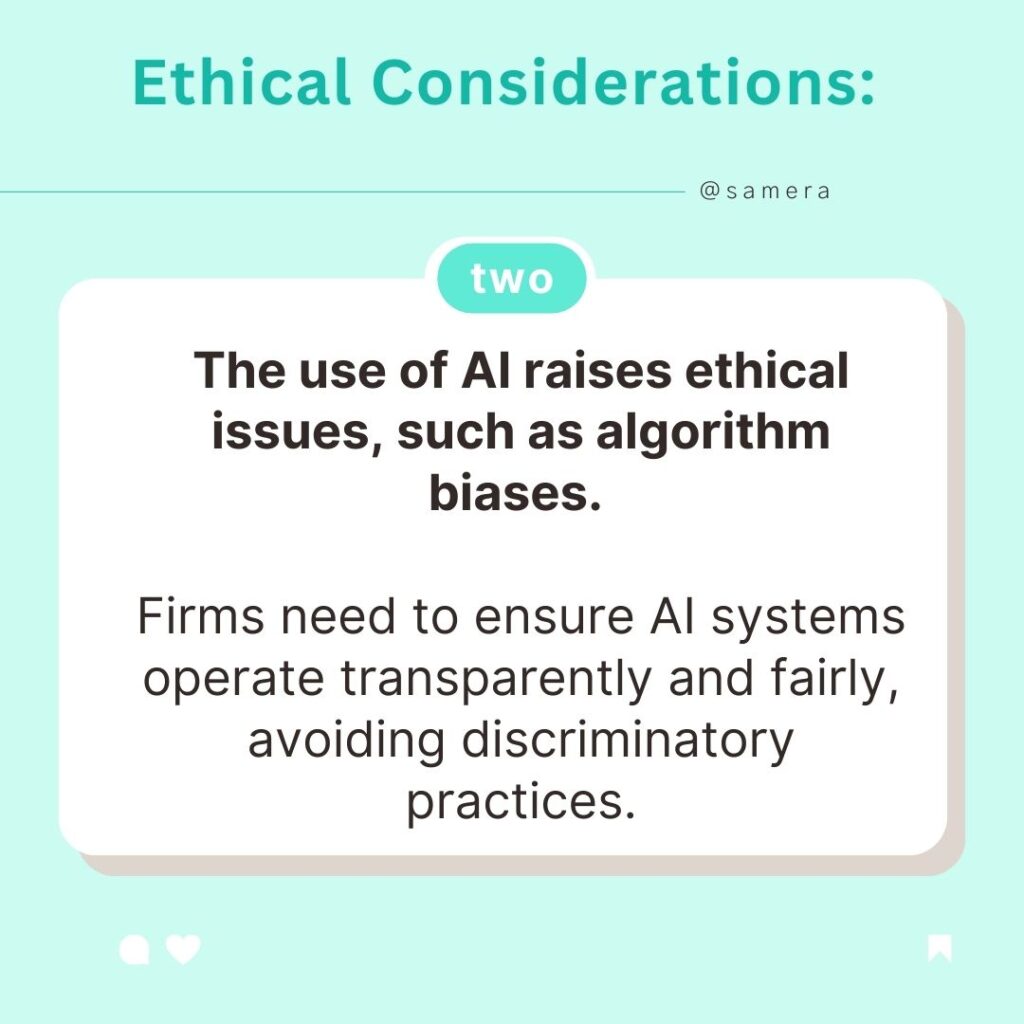
- Data Security: AI relies on vast amounts of data, making data security a paramount concern. Accounting outsourcing firms need to implement robust cybersecurity measures to protect sensitive financial information. Safeguarding against data breaches, unauthorized access, and cyberattacks is vital to maintain client trust and compliance with data protection regulations.

- Skill Gap: Integrating AI into accounting outsourcing requires professionals with the necessary skills and expertise. However, there is a shortage of AI talent, which poses a challenge for firms seeking to implement AI solutions. Upskilling existing staff or recruiting AI specialists can help bridge the skill gap and ensure successful AI adoption in accounting outsourcing.
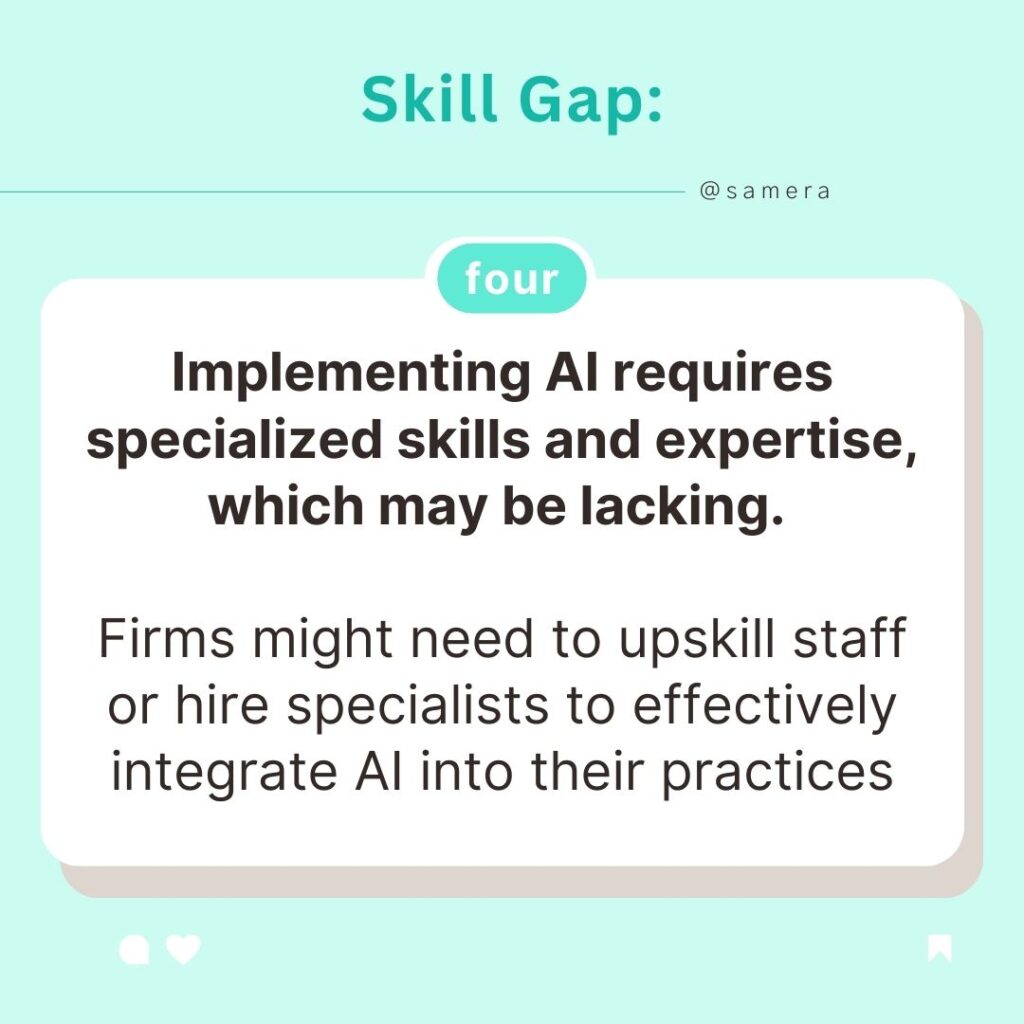
- Regulatory Compliance: The use of AI in accounting must comply with various regulatory requirements. Accounting outsourcing firms must navigate complex legal and compliance frameworks, ensuring that AI systems adhere to industry-specific regulations, data privacy laws, and financial reporting standards. Staying abreast of evolving regulatory landscapes and maintaining compliance are critical considerations for firms adopting AI.
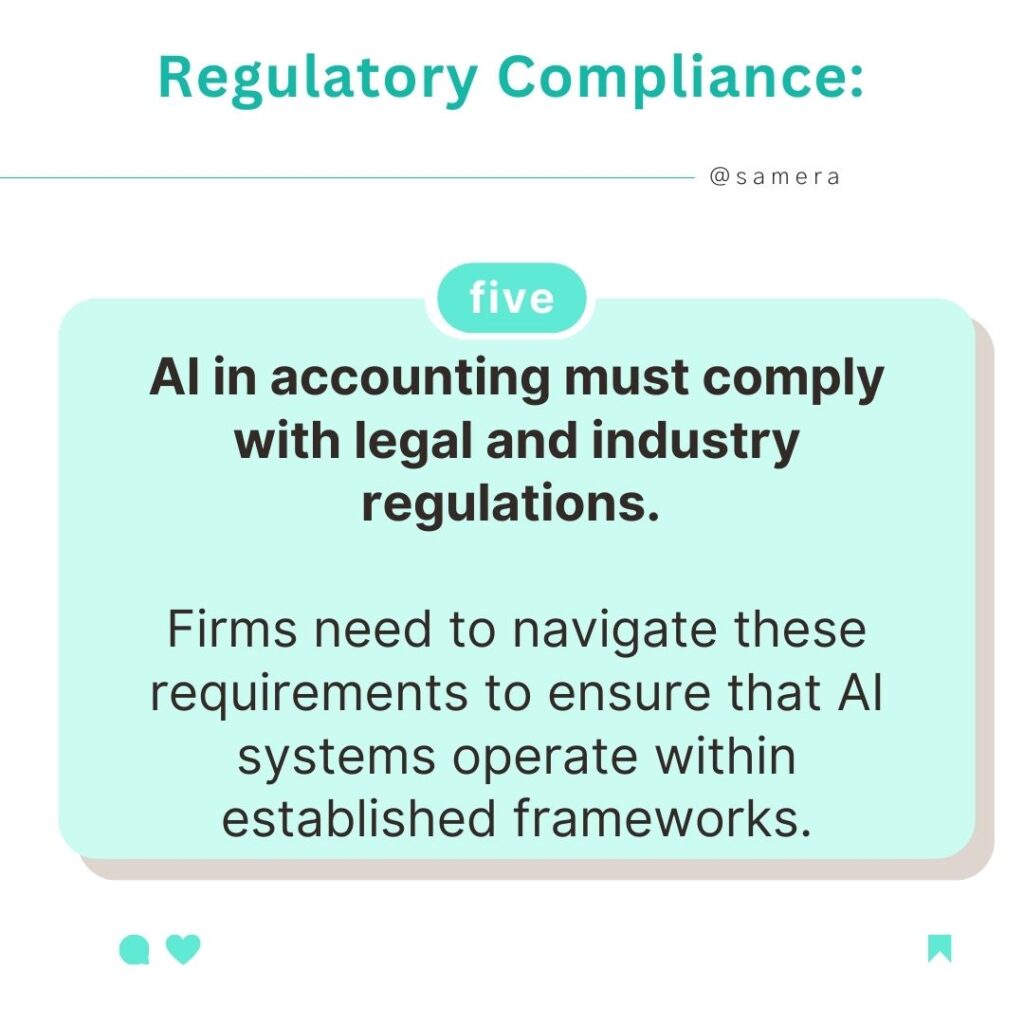
Did You Know?
- Over 70% of accounting outsourcing firms are planning to invest in AI solutions in the next 2 years. (Source: KPMG, 2023 Global Accounting Outsourcing Survey)
- AI-powered automation can help accounting outsourcing firms reduce their costs by up to 30%. (Source: McKinsey & Company, 2023 Global Accounting Outsourcing Trends Report)
- Companies that use AI in accounting outsourcing are 10% more likely to achieve their financial goals. (Source: Deloitte, 2023 Global Accounting Outsourcing Benchmarking Study)
- AI can help accounting outsourcing firms improve their client satisfaction scores by up to 15%. (Source: Gartner, 2023 Accounting Outsourcing Customer Satisfaction Survey)
- The global market for AI in accounting outsourcing is projected to reach $20 billion by 2027. (Source: Markets and Markets, 2023 Global Artificial Intelligence in Accounting Outsourcing Market Report)
- By 2025, AI is expected to automate 40% of all accounting tasks. (Source: Association of International Certified Professional Accountants, 2023 AICPA Accounting Technology Outlook)
Conclusion
Artificial Intelligence presents significant opportunities and challenges for accounting outsourcing firms. The impact of AI, including improved efficiency, enhanced accuracy, real-time reporting, and advanced fraud detection, can revolutionize the way accounting services are delivered.
However, challenges such as data quality, ethical considerations, data security, skill gap, and regulatory compliance must be effectively addressed to fully unlock the potential of AI in accounting outsourcing. By embracing the transformative power of AI while navigating these challenges, accounting outsourcing firms can position themselves for success in the dynamic and technology-driven accounting landscape of the future.
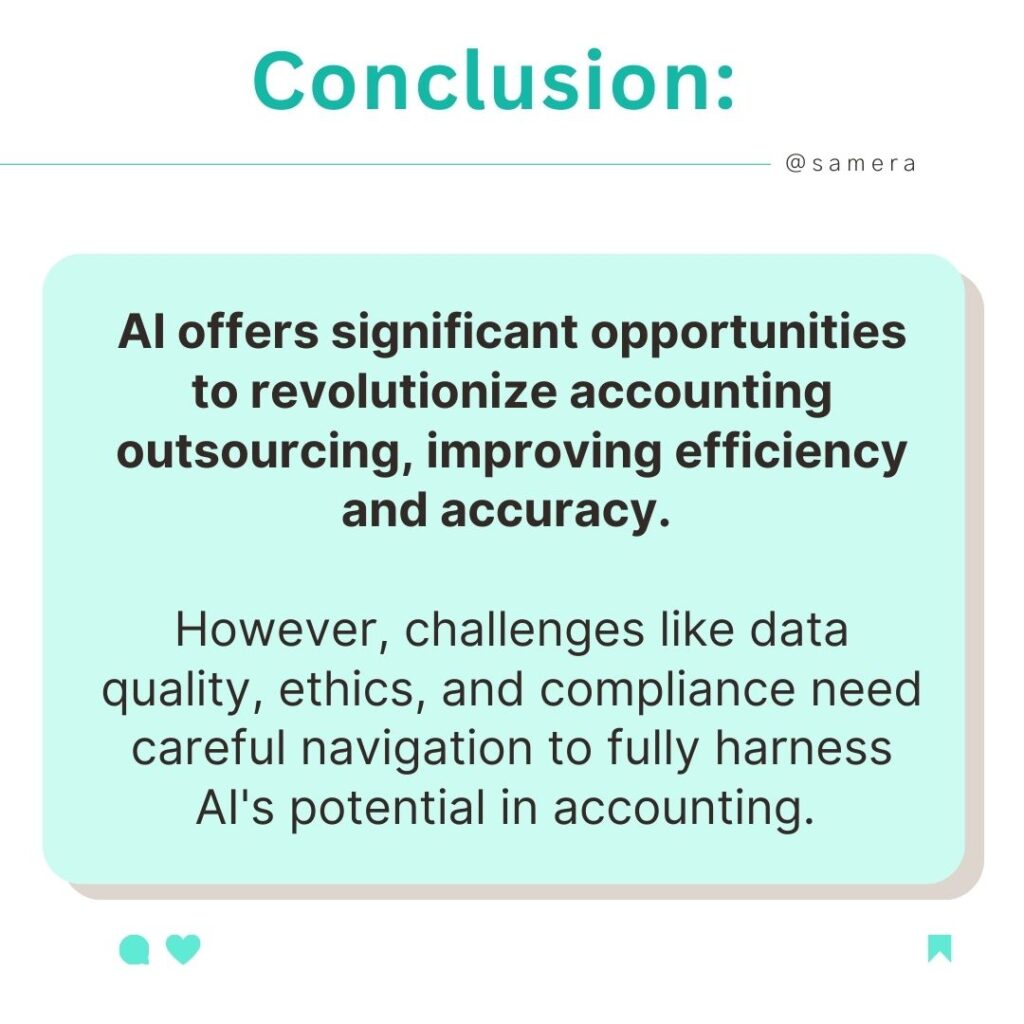

Expert Opinion
Don’t kid yourself AI is changing everything and will change accounting forever. But you have a choice to embrace it or resist it. My view is to embrace, this is when the opportunies will arise and new ideas and better things will happen to your firm. Don’t worry, embrace and see what AI can do for you – you won’t regret it, and we are already doing this on so many levels. Need help with AI? Get in touch with me, we can position and advise accordingly!
Reviewed By:

Arun Mehra
Samera CEO
Arun, CEO of Samera, is an experienced accountant and dental practice owner. He specialises in accountancy, financial directorship, squat practices and practice management.





